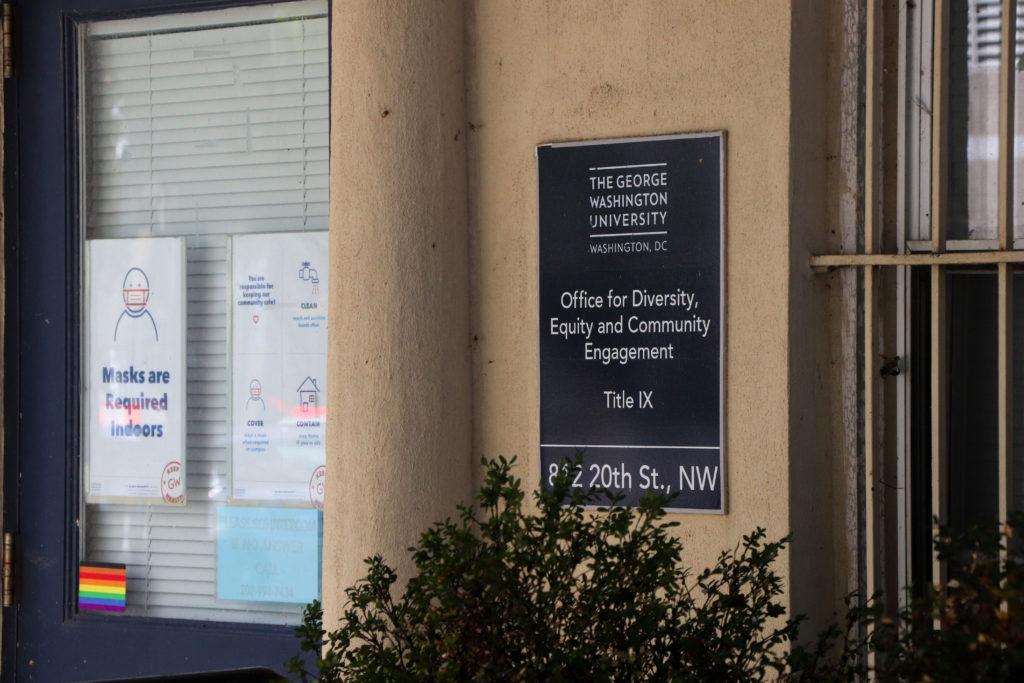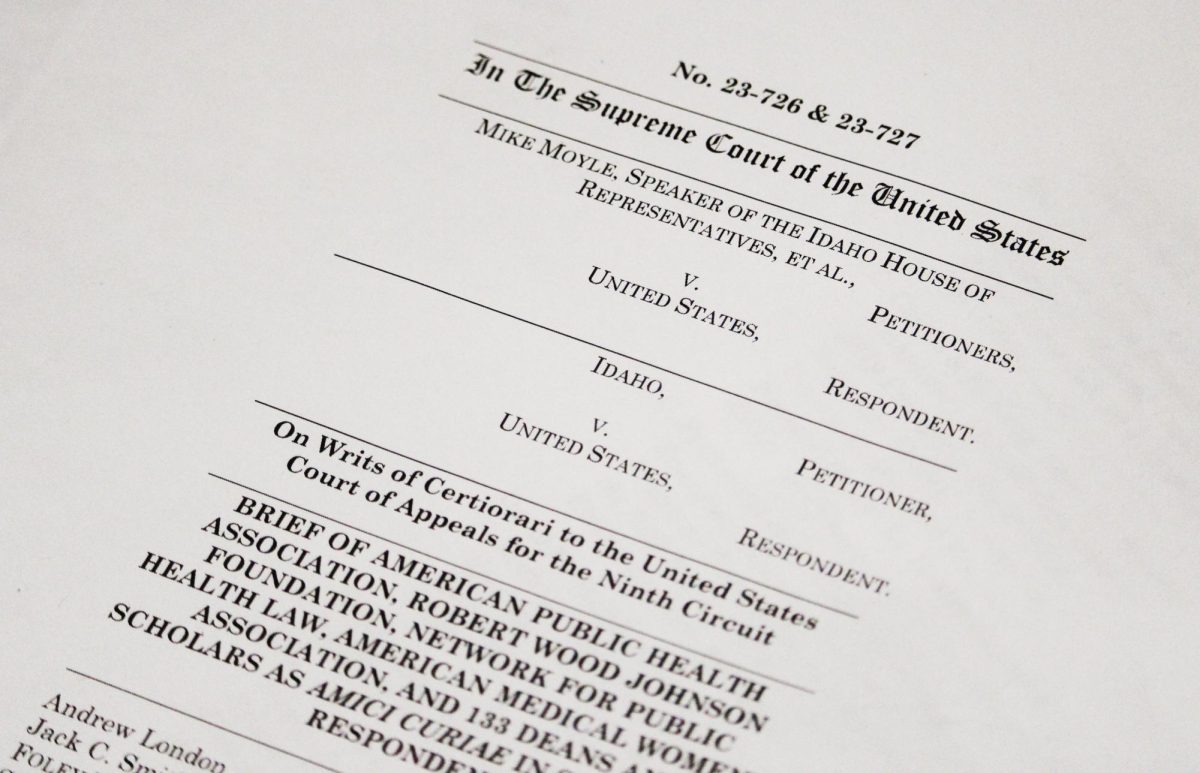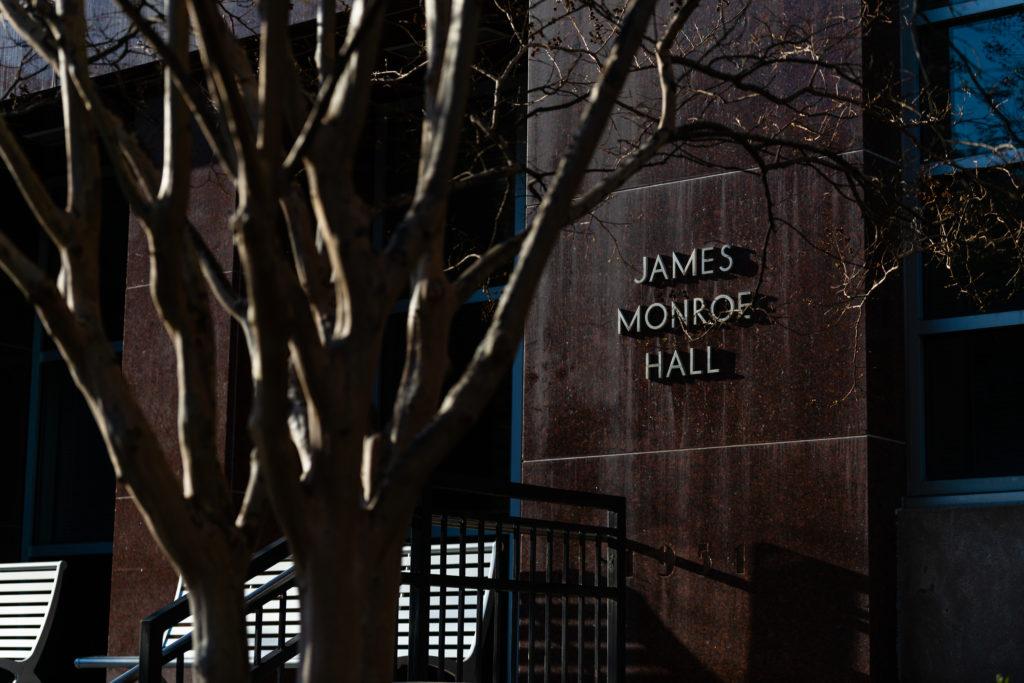The Title IX Office released its first annual report late last month, detailing a year of reporting rates that the office’s director said took a “notable increase” last academic year.
The Title IX Office registered 380 reports of sexual harassment, sexual assault, stalking, dating violence, pregnancy and parental support and domestic violence in the 2021-22 academic year, the majority of which were filed by designated reporters and impacted undergraduate students, according to the report. Asha Reynolds, the director and coordinator of the Title IX Office, said the report – which also highlights victim resources – reveals a rise in overall reports and an increase in community engagement with the office’s reporting mechanisms during the past academic year.
Designated reporters – faculty and staff required to report potential sexual assault or harassment incidents involving students to the Title IX Office – filed 217 of the academic year’s reports, while students filed 107 reports on their own behalf and 34 reports on the behalf of other students and non-GW affiliates filed eight reports.
Reynolds said the office provides academic support, exam rescheduling assistance, deadline extensions, class and work schedule changes, housing assignment switches and mutual no-contact orders. She said the Title IX Office provides prevention and educational programs about sexual harassment that create a safe and inclusive environment on campus by responding fairly to Title IX reports.
“We believe greater transparency and a better understanding of the Title IX Office’s processes, resources and services will make community members feel more comfortable accessing and utilizing our services,” Reynolds said in an email. “We look forward to continuing to be a resource for our University community and working together to create a positive climate on our campuses.”
Of the 380 reports that officials recorded during the previous academic year, 246 were cases of sexual harassment, 126 were sexual assault and 77 were stalking, according to the report. An additional 29 reports were for reports of dating violence, while there were 22 filed requests for pregnancy and parental services, the Title IX Office data reveals.
The Title IX Office handled 144 reports with supportive measures, or nondisciplinary services or accommodations, and did not require other resolutions or additional action.
The report expands on yearly Title IX sexual assault, domestic violence, dating violence and stalking data listed in the Annual Security and Fire Safety Report published by the University, disclosing the locations of the crime, semester breakdowns and who reports an incident. The Title IX report clarifies its data “differs” from the data found in the annual security report because of separate incident reporting criteria for the GW Police Department under federal law.
Out of GW’s 12 peer schools, the University of Rochester is the sole school to release an annual Title IX report, but all of GW’s peer schools publish annual security and fire safety reports with Title IX data included, pursuant to the Clery Act – a federal law requiring colleges to publicly report the crimes on campus and outline policies that improve campus safety.
Bella Sayegh, the co-president of Students Against Sexual Assault, said the release of the annual number of Title IX reports shows transparency from the Title IX Office, and she hopes the report will spark discussion about solutions to decrease incidents of sexual violence. She said the report increases students’ awareness about the supportive resources the Title IX Office provides that doesn’t require starting a formal investigative process.
Sayegh, a senior studying English, said the report is a “little overdue” but provides a starting point for students who aren’t sure where to turn for help after an incident. She said normalizing discussion over sexual violence prevention and educating community members about available resources is a step in the right direction for the University.
“We think it’s really important, obviously, to make sure that everyone has access to the same resources because there are so many options whether it be at GW specifically or in our greater D.C. community,” Sayegh said. “There are just so many resources that are staffed by people who really want to help people and survivors in these instances so just increasing transparency on what those are is super helpful.”
Experts in Title IX law, regulation and activism said the inaugural report signals transparency from GW and introduces steps “in the right direction” for the Title IX Office and its accountability for reported cases.
Kristina Supler – a Title IX attorney at the Kohrman, Jackson and Krantz law firm – said GW’s Title IX report and similar efforts by universities raise awareness about Title IX and the resources like advisers, mental health services and new housing accommodations available to students. She said collecting and sharing data is useful, but reporting “numbers don’t always capture the whole picture” of students’ experiences because many victims do not report incidents to authorities.
The U.S. Department of Education released proposed changes to Title IX regulations in June to broaden the legal definition of sexual harassment and discrimination and include protections for LGBTQ+ students and eliminate discrimination against pregnant students and employees. GW officials are currently preparing to mandate Title IX training for faculty and staff pending the approval of the Biden’s administration’s changes to Title IX.
“We have noticed a real growth in student understanding and awareness of Title IX and campus safety issues,” Supler said. “That’s really a good thing so that students can advocate for themselves and others and everyone can be a good bystander to keep each other safe.”
Ann Olivarius – the chair of the executive committee and an attorney at the McAllister Olivarius law firm who is widely recognized for her work on the foundational Alexander v. Yale Title IX case, the first to find illegal inaction against sexual harassment cases among universities – said GW was “late to the table” in their release of an annual report. She said “perhaps half” of higher education institutions like Vanderbilt and Yale universities and the University of San Antonio already release reports like GW’s.
She said despite allowing for greater transparency, reports that institutions like the University release don’t change the “course of the problem” because they don’t serve as a call to action as much as they protect the reputations of GW and other institutions. Olivarius said until universities are held civilly liable – which requires a party to pay for damages in a lawsuit – they won’t be on the same side of the survivors.
“When institutions have to pay money, the whole world changes,” Olivarius said.
Faith Wardwell and Nikki Ghaemi contributed reporting.







